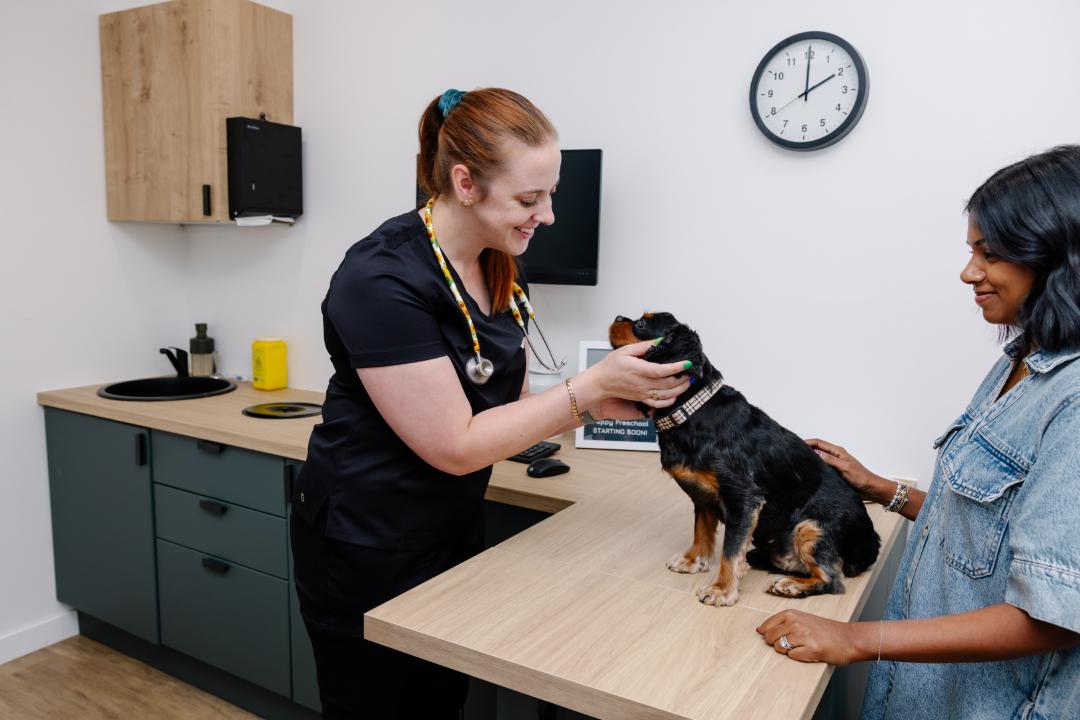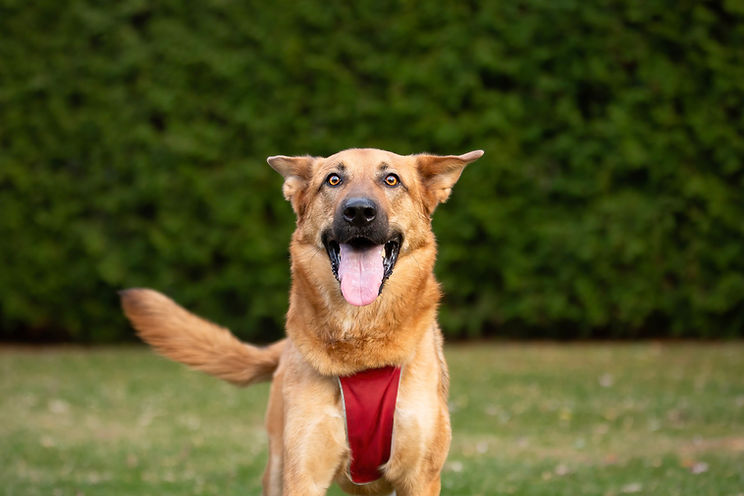Top strategies for hiring a cat behaviourist near me
Recognizing the Role of a Veterinary Behaviourist in Family Pet Training and Health
The duty of a veterinary behaviourist is necessary in resolving the detailed relationship in between pet dogs and their owners. They combine veterinary medication with understandings from pet actions scientific research to take on problems like aggression and anxiety. Unlike typical instructors, their method concentrates on the underlying causes of these actions. This nuanced viewpoint questions concerning the effectiveness of standard training techniques and just how a deeper understanding can change pet wellness. What techniques do they employ to attain these results?
What Is a Vet Behaviourist?
A veterinary behaviourist is a specialized specialist that concentrates on understanding and addressing the behavior issues of pets, especially family pets. Their expertise integrates vet medicine and pet actions science, enabling them to identify and treat a large range of behavior troubles - veterinary behaviour. These specialists usually hold postgraduate degrees, such as a Master's or PhD in pet behavior, and are certified by pertinent companies, ensuring they possess a deep understanding of animal psychology
Vet behaviourists assess pets via comprehensive monitoring and evaluation, taking into consideration factors such as genetics, setting, and training background. They create customized behavior adjustment strategies, which may include desensitization strategies, favorable support strategies, and environmental adjustments. Partnership with pet proprietors is essential, as they provide advice and assistance throughout the training procedure. Inevitably, the objective of a veterinary behaviourist is to enhance the health of the pet while cultivating a harmonious connection in between family pets and their proprietors.
The Relevance of Recognizing Animal Behavior
Understanding pet habits is necessary for both animal owners and experts in the field of pet treatment, as it lays the foundation for effective communication and training. Recognizing exactly how animals perceive their setting and react to stimuli enables caregivers to create an extra unified living circumstance. Insight right into behavioral hints, such as body language and vocalizations, cultivates more powerful bonds between animals and their owners. By valuing the all-natural impulses and demands of different species, individuals can tailor their training approaches to accommodate these factors, promoting far better understanding and participation. In addition, a strong understanding of behavioral science aids in determining stressors and potential triggers, permitting proactive interventions. In general, recognizing pet behavior not only improves the well-being of pets yet likewise improves the experiences of those who look after them, ultimately leading to much healthier, better partnerships.
Common Behavioral Issues Dealt With by Veterinary Behaviourists
Veterinary behaviourists frequently address typical behavioral problems in pet dogs, consisting of hostility and anxiety reactions. They also concentrate on anxiousness and stress and anxiety administration, which can greatly affect an animal's well-being. Comprehending these issues is crucial for developing effective training and intervention methods.
Hostility and Concern Actions
While several pet dog proprietors might watch aggressiveness and fear actions as straightforward behavior problems, these intricate responses usually originate from underlying stress and anxiety or past trauma. Vet behaviourists play a necessary function in identifying the root triggers of these habits, which can manifest in different kinds, including growling, attacking, or too much fear of certain situations. Recognizing these triggers is vital for establishing reliable training techniques tailored to each pet's one-of-a-kind situations. Behaviourists utilize approaches such as desensitization and counter-conditioning to aid family pets handle their worries and aggressiveness. Furthermore, they educate pet owners about proper administration strategies, highlighting the relevance of persistence and consistency. Addressing hostility and anxiety responses not only boosts the family pet's high quality of life but also reinforces the bond in between animal and proprietor.
Anxiety and Tension Monitoring
Anxiousness and tension are common problems that several family pets deal with, typically resulting from changes in their environment, lack of socialization, or previous negative experiences. Veterinary behaviourists play an essential role in identifying the underlying root causes of these problems. They utilize various methods, including behavioral adjustment, desensitization, and counter-conditioning, to aid pets handle stress and anxiety. In addition, they may advise environmental changes, such as developing safe rooms or offering enrichment tasks that promote relaxation. Collaboration with pet dog proprietors is important, as behaviourists guide them in recognizing their pet dog's signals and carrying out effective coping techniques. By resolving stress and anxiety and tension, veterinary behaviourists contribute considerably to boosting the general health and top quality of life for animals and their families.
How Vet Behaviourists Differ From Standard Instructors
Vet behaviourists differ from standard fitness instructors largely in their instructional backgrounds and training. While traditional trainers commonly concentrate on obedience and standard commands, veterinary behaviourists highlight understanding and dealing with underlying behavior concerns, incorporating medical factors to consider right into their strategy. This distinctive focus enables them to supply a more detailed therapy for animals with complicated behavioral obstacles.
Education And Learning and Training Differences
Understanding the difference between veterinary behaviourists and standard instructors is vital for family pet proprietors seeking reliable training solutions. Vet behaviourists have innovative degrees in vet medicine, commonly followed by specialized training in pet behaviour. This education and learning equips them to address complicated behavioral concerns that might originate from medical problems or emotional variables. In contrast, conventional instructors commonly have accreditations from training programs that concentrate on obedience and standard commands without diving into the underlying emotional or clinical elements. While both specialists intend to boost animal practices, veterinary behaviourists can diagnose and deal with behavioural issues holistically, integrating clinical knowledge right into training strategies. This crucial distinction highlights the relevance of choosing the right expert based on the animal's details requirements.
Emphasis on Behavioral Issues
Attending to behavioural concerns calls for a nuanced technique that differentiates vet behaviourists from standard fitness instructors. While standard trainers often concentrate on obedience and basic commands, vet behaviourists discover deeper right into the underlying sources of bothersome behaviors. They use a comprehensive understanding of pet psychology and therapy techniques, which are rooted in clinical study. This proficiency allows them to recognize problems originating from anxiousness, worry, or aggressiveness, instead of simply addressing surface-level signs and symptoms. Additionally, vet behaviourists evaluate the pet's total wellness, thinking about ecological elements and the pet's background. By integrating clinical expertise with behavioural approaches, they supply customized solutions that promote lasting behavioural change, guaranteeing both the pet dog's and owner's quality of life are markedly boosted.
Clinical Considerations Consisted Of
While typical instructors might neglect underlying medical problems, vet behaviourists focus on a thorough evaluation of a family pet's wellness as a fundamental action in addressing behavioural issues. This method enables them to determine prospective medical conditions that may add to undesirable behaviours, such as anxiety, discomfort, or neurological disorders. By integrating clinical evaluations into their practice, veterinary behaviourists can collaborate with veterinarians to guarantee an all natural understanding of the pet dog's health. Additionally, they can advise proper treatments discover here or adjustments to training plans based on clinical other searchings for. This substantial point of view distinguishes veterinary behaviourists from typical instructors, as they attend to both behavioral and health-related elements, inevitably bring about much more effective and lasting outcomes for pet dogs and their owners.

The Refine of Collaborating With a Veterinary Behaviourist
Working together with a veterinary behaviourist includes an organized method to attending to a pet's behavior problems. The procedure starts with a substantial analysis, where the behaviourist collects thorough info concerning the animal's background, atmosphere, and specific behaviors that are problematic. This generally consists of sets of questions, meetings with the pet owner, and sometimes monitorings of the pet dog in its atmosphere.
Complying with the analysis, the veterinary behaviourist creates a customized treatment strategy that may include behavioral adjustment methods, training techniques, and, if needed, suggestions for medical assessments. board certified veterinary behaviourist. The strategy is made to be sensible and achievable, making certain that it fits perfectly into the pet dog owner's way of life
Subsequent follow-up sessions are vital to check progress, adjust techniques, and give assistance. This joint effort not only aims to change unwanted behaviors however additionally to boost the overall health of the pet dog, making sure a harmonious partnership in between the pet and its proprietor.
Enhancing Your Family pet's High quality of Life Via Behavioral Assistance
Enhancing a family pet's lifestyle through behavior support is vital for cultivating a healthy and balanced and satisfying relationship between animals and their owners (canine behaviourist near me). Veterinary behaviourists play an essential role in identifying and dealing with behavioral concerns that may hinder an animal's well-being. Via tailored strategies, they assist ease anxiousness, worry, and aggressiveness, eventually advertising a more balanced and delighted animal
Behavioral support encompasses different methods, including favorable reinforcement, ecological enrichment, and socialization. By carrying out these techniques, owners can create a nurturing environment that encourages positive behaviors. This not just enhances the pet dog's psychological wellness however additionally reinforces the bond between pet dog and owner.
In addition, regular assessments with a veterinary behaviourist warranty that any kind of emerging behavioral problems are promptly dealt with, stopping acceleration. On the whole, purchasing behavioral support is a proactive strategy that substantially improves a pet's life, leading to boosted physical and mental health and wellness results.
Regularly Asked Inquiries
What Credentials Do Vet Behaviourists Have?
Vet behaviourists typically hold a veterinary degree, followed by specialized training in animal behavior. Many likewise have certifications from identified organizations, showing their experience in addressing pet behavior concerns and advertising overall animal health.
Can Veterinary Behaviourists Suggest Medication for Pets?


Veterinary behaviourists, having vet degrees and specialized training, can without a doubt suggest drug for pets. This ability enables them to address underlying behavior issues effectively, typically combining medicinal treatment with behavioral modification methods for best outcomes.
The Length Of Time Does Behavior Modification Typically Take?
Behavior modification period varies substantially, generally varying from a couple of weeks to numerous months. Elements affecting this timeline include the pet's particular Read Full Article problems, uniformity of training, and the proprietor's engagement at the same time.
Are Remote Consultations Available With Veterinary Behaviourists?

Just how much Does a Veterinary Behaviourist Assessment Cost?
The price of a veterinary behaviourist consultation typically varies from $100 to $300, relying on factors such as area, experience, and session size. Extra costs might get follow-up examinations or specialized solutions.